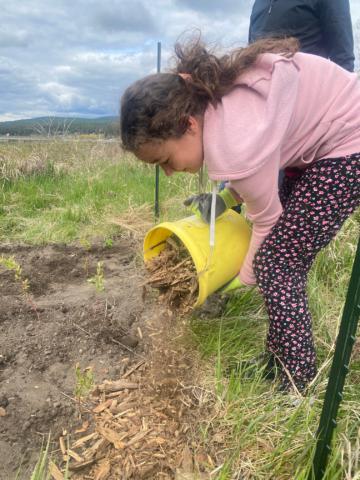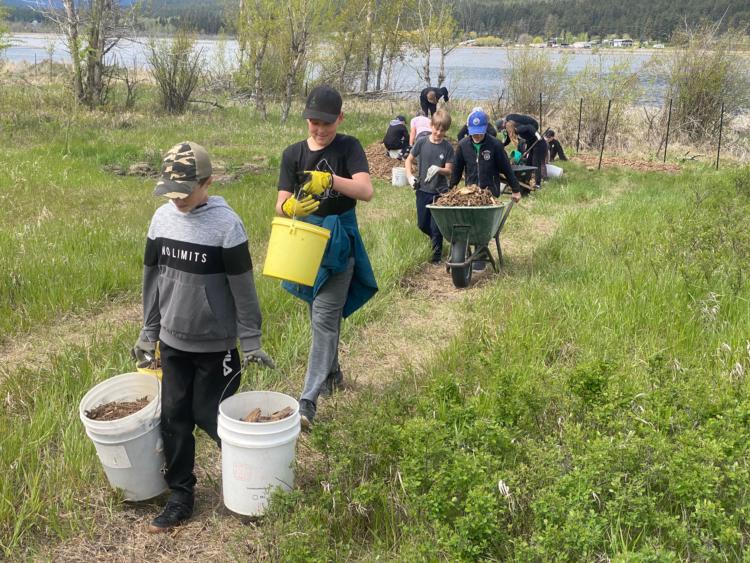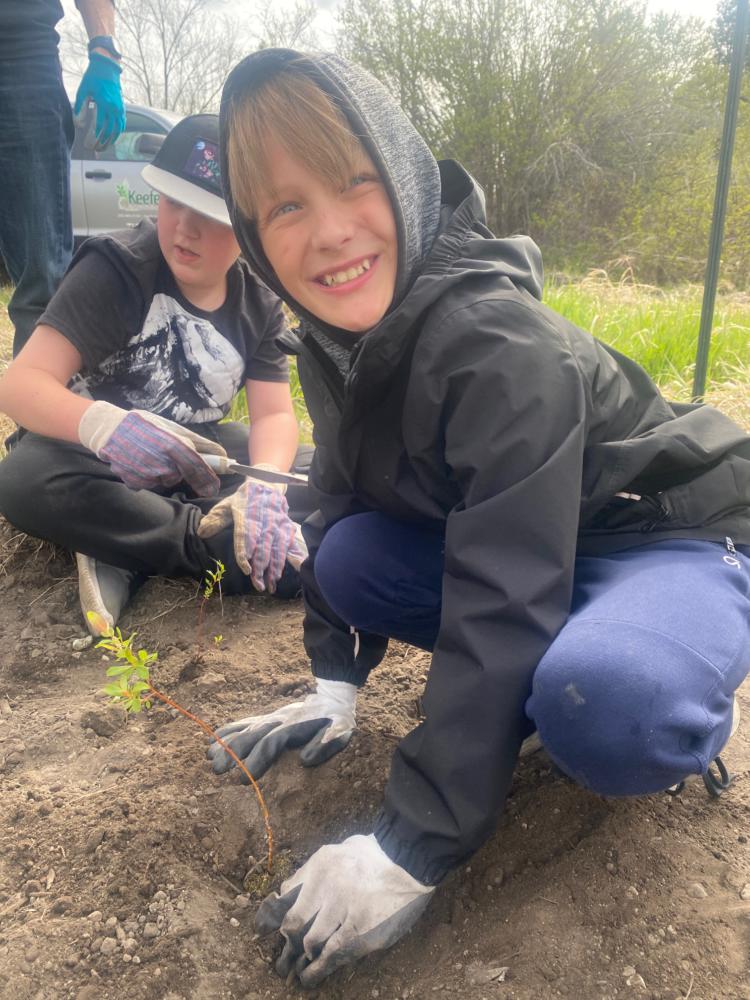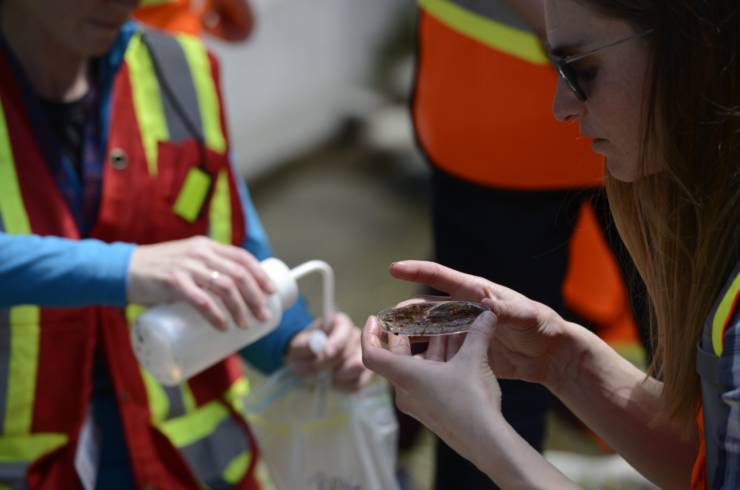
Elizabeth Lake is a beloved Cranbrook wetland. This important nature reserve provides a critical nesting and staging area for several types of birds, as well as a safe habitat for Western Painted Turtles and other wildlife. Birders, families and anyone seeking a peaceful walk seek out this peaceful 5.9 hectare haven on the edge of the city.
Students from Bruce Mcanerney’s Grade 6 class at Cranbrook’s TM Roberts Elementary School joined forces with Rocky Mountain Naturalists and Keefer Ecological Services to support the City of Cranbrook’s Elizabeth Lake Restoration Project.
“Our goal is to improve diversity and plant cover, bird nesting opportunities, enhance carbon sequestration, and fire resistance,” explains Marianne Nahm, president of Rocky Mountain Naturalists.
The 18 students planted nearly 50 native shrubs near the wetland edge and covered them in mulch to help slow the return of weeds and hold in water during hot summer days.
“The work is being done to replace the dense mat of weeds that has taken over around much of the wetland, a former sawmill log float, industrial site, and dump,” explains Wildsight Educator Dave Quinn, who led the students in this hands-on project.
Students learned a lot about the wetland, and the role they can play in its stewardship.
“I learned about a lot of things like flowers and trees. Our whole class learned not to wreck anything like creeks, bugs, birds, fish and the trail,” says 11-year-old Tavin McKinnon.
Nahm says working with the students was a great success.
“They were responsible, and attentive to detail during the planting,” she shares. “They planted, carried and placed mulch. But more than that, the students were respectful and cooperative!”
The class field trip was part of Know Your Watershed, a regionally-based watershed education program of the Columbia Basin Trust administered and delivered by Wildsight educators across the basin.










